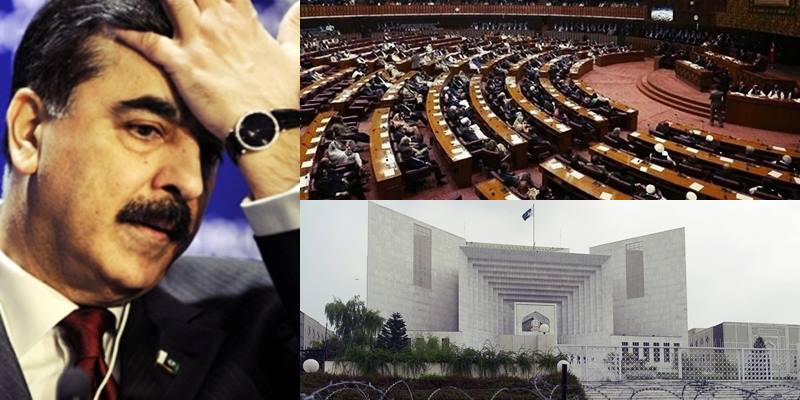Published in India’s leading weekly Tehelka
Deep political instability immediately before the elections makes it difficult for a smooth transfer of power
Just when most Pakistani analysts had ruled out a military coup given the tenuous power-sharing arrangements between the state actors, the recent decision by the Supreme Court to disqualify and oust an elected prime minister has thrown the country into an unstable phase. The timing of the decision is significant. Popular Supreme Court Chief Justice Iftikhar Muhammad Chaudhry was recently scandalized by a businessman’s allegations of corruption against his son and the Pakistan Peoples Party-led government is close to completing its five-year term.The Supreme Court’s credibility was seriously challenged in recent days and many observers construed it to be an attack by the security establishment for the court’s activism on the missing persons’ case that it has been aggressively pursuing. Further, the Supreme Court’s strong stance on the issue of human rights in Balochistan was also termed as a major factor. Historically, the judiciary has been a subordinate partner of the military. It was also believed that the civilian government led by President Asif Ali Zardari was not orchestrating the attack on the family of the chief justice but it was surely playing along. The judges with their new-found independence showed a semblance of unity and retorted by taking the media to task and sending a strong signal that they will not let the civilian or military executive attack their adjudication of populist causes.
Prime Minister Yousuf Raza Gilani’s ouster is, therefore, being linked to the re-assertion of the court’s power. But the fact that it comes nine months prior to the elections is stirring many conspiracy theories. Cynics say that the court has thrown the country into another uncertain phase at a time when Pakistan is facing an economic meltdown, an acute energy crisis and deteriorating relations with its long-term ally, the United States. The planned exit of the US and the NATO troops from Afghanistan is critical for Pakistan, especially for the military, which wants to see a Pakistan-friendly government in its neighbour, and also fears, the growing Indian influence in Afghanistan.
But there are other explanations too. The Supreme Court has time and again asserted its independence. It has checked corruption, taken a host of public officials to task and pursued several human rights cases. Whilst its relations with the PPP-led government have been strained from the very start, it did not destabilize the government until the recent decision where the Prime Minister expressly defied the apex court’s orders. What does this mean for Pakistan?
Pakistan’s transition to democracy requires dilution of the strongest component of the state – the military executive. But the counter-trend of weakening of the civilian government’s legitimacy takes away the impact of power-redistribution. Some analysts in Pakistan are worried. For instance, a few leading English papers have been critical of the decision and the Daily Times wrote an editorial titled ‘Looming judicial tyranny’ in its 21 June issue. Pakistan’s record of unelected institutions ruling by coup and/or decree evidently is not being broken.
Deep political instability immediately before the elections makes it difficult for a smooth transfer of power. The power struggle among the key pillars of the state does not augur well for the future. Democratic governance requires consensus on the way forward.
The new prime minister replacing Gilani is likely to enter into a confrontation with the judges as he or she will also refuse to write to Swiss authorities to re-open old cases of corruption against Zardari (originally filed by governments hostile to late Benazir Bhutto). Therefore, for a prime minister, who is bound by the party’s policy of not reopening cases, to survive even for six months is difficult.
The PPP will, therefore, have no choice but to settle for an early election. Opposition leader Nawaz Sharif has also demanded immediate elections to end the crisis in the country. The PPP, however, cannot afford to contest elections earlier as it would first want to overcome the power crisis and dole out patronage to ensure its constituents’ support.
However, it is not clear what the army wants. The army is worried about the economy and would like civilians to deliver the goods. Continuing instability will prevent this to happen. Therefore, some Pakistani journalists are predicting a long-term caretaker administration to ‘fix’ Pakistan’s endemic problems. However, this seems like an impracticable idea. It would be difficult to achieve a political consensus on options which preclude elections. Thus, Pakistan may just opt for early elections. But there will be much drama before this happens, disenchanting Pakistanis further with their squabbling and irresponsible elite.
Raza Rumi is a Director at an Islamabad think tank and is a political analyst and writer
www.razarumi.com



